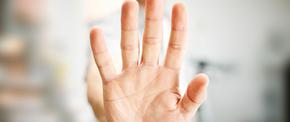The views expressed in our content reflect individual perspectives and do not represent the authoritative views of the Baha'i Faith.
One of my favorite aspects of the Baha’i Faith, ranking alongside its teachings on racial equality, the harmony of science and religion, and a concrete plan for world unity, are the plethora of teachings regarding the inherent worthiness and equality of women.
No other world religion has been quite as explicit as the Baha’i Faith in its esteem for the female gender.
This is distinct to the teachings of Baha’u’llah, the prophet and founder of the Baha’i Faith, for all other religions have placed men above women. For thousands upon thousands of years, women were treated as possessions, and in many countries and religious communities, this has not changed. In some places, women cannot get an education, and men still question if they even have a soul.
RELATED: Solving Economic Inequality by Educating Girls and Women
It took one intensely courageous young woman to unequivocally draw the line of her equality in the sand. In 19th century Persia, Tahirih, a beautiful young poet and follower of the Bab — the forerunner of Baha’u’llah — removed her veil in public.
With equanimity, she proclaimed: “You can kill me as soon as you like,” she powerfully asserted to her executioners, “but you will never stop the emancipation of women.” In 1852, at the age of 38, Tahirih was brutally executed for her beliefs.
Her refusal to submit to the patriarchy helped begin an exciting new era of enlightenment with regard to the female gender. The teachings of the Bab and Baha’u’llah sent shock waves through a misogynistic society and the power of those progressive teachings reverberated throughout the world. As Abdu’l-Baha, the son and successor of Baha’u’llah, said in addresses he gave in Europe and North America, it was time for women to take their rightful place beside men:
In the Dispensation of Baha’u’llah, women are advancing side by side with men. There is no area or instance where they will lag behind: they have equal rights with men, and will enter, in the future, into all branches of the administration of society. Such will be their elevation that, in every area of endeavour, they will occupy the highest levels in the human world. Rest thou assured. Look not upon their present state. In future, the world of womankind will shine with lustrous brilliance, for such is the will and purpose of Baha’u’llah. At the time of elections the right to vote is the inalienable right of women, and the entrance of women into all human departments is an irrefutable and incontrovertible question. No soul can retard or prevent it.
When all mankind shall receive the same opportunity of education and the equality of men and women be realized, the foundations of war will be utterly destroyed. Without equality this will be impossible because all differences and distinction are conducive to discord and strife. Equality between men and women is conducive to the abolition of warfare for the reason that women will never be willing to sanction it.
Equality does not mean “sameness,” according to the Baha’i teachings. Each gender possesses basic instincts, functions, and qualities that complement each other. Consider the two colors, blue and yellow. One could hardly say one is better than the other. Each has a worthwhile function in life. But when they unite harmoniously, they create green, something altogether new and valuable.
RELATED: How These Fathers Confront Sexism
A 1975 statement from the Universal House of Justice, the democratically-elected leadership body of the world’s Baha’is, explained:
Equality between men and women does not, indeed physiologically it cannot, mean identity of functions. In some things women excel men, for others men are better fitted than women, while in very many things the difference of sex is of no effect at all. The differences of function are most apparent in family life. The capacity for motherhood has many far-reaching implications which are recognized in Baha’i Law. For example, when it is not possible to educate all one’s children, daughters receive preference over sons, as mothers are the first educators of the next generation.
To educate a generation is quite a lofty and exceedingly important undertaking, and women have always been more than up to the task. Women excel in the “feminine qualities” of compassion and empathy, and, as Abdu’l-Baha, the son of Baha’u’llah and his designated successor said: “In some respects woman is superior to man. She is more tender-hearted, more receptive, her intuition is more intense.”
In a talk in London, Abdu’l-Baha also said: “Taken in general, women today have a stronger sense of religion than men. The woman’s intuition is more correct; she is more receptive and her intelligence is quicker.”
This powerful elevation of the female position and perspective in the Baha’i teachings comes directly from the Baha’i Faith’s founder, Baha’u’llah.

















Comments
Sign in or create an account
Continue with Facebookor